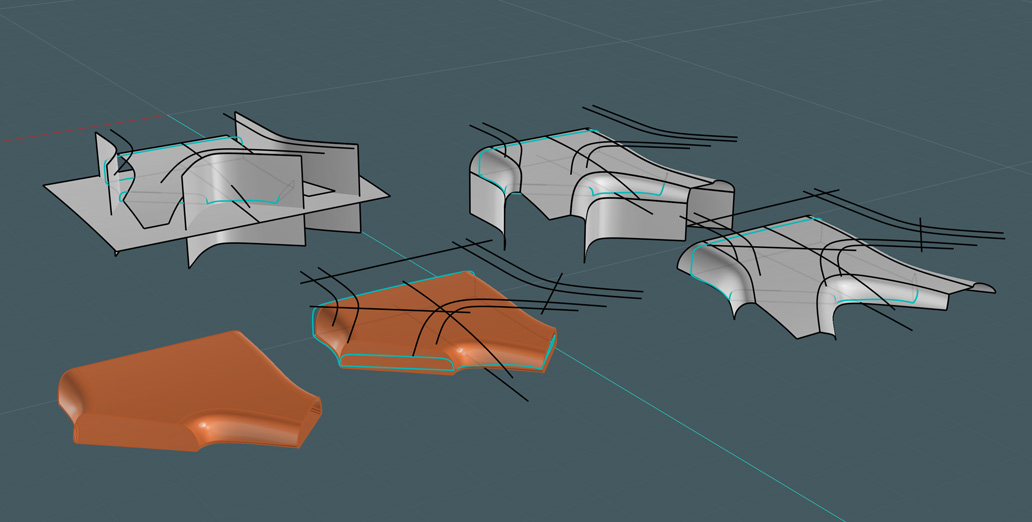Heiner,
Maybe you should consider an analytical approach. Or in other words, just build your shape using basic boolean methods:

I made the top and bottom surfaces, which were more broad. In this case, I extruded two curves, but a smooth and simple Network of what you would like to portray as far as the overall shape would do.
From the top view, I made three curves representing the curvy areas, three lines to represent your openings, and an Inset (offset) of the curves to represent the inside.
I trimmed the top surface with the more inner curves and kept that shape.
I extruded the more outer curves downwards, then I trimmed them with the bottom surface. I also derived my bottom surface shape from those curves.
I then Blended surfaces between the edges of the more smaller top shape and the vertical surfaces of the extrusions.
I did some extra trimming, but then I was able to join everything together.
I used the straight lines to trim the openings.
The bottom had a sharp lip and I applied some fillets.
So with some brute basics, I was able to outright create a shape close to maybe what you were envisioning.
But like Michael mentioned, the more organic a direction you intend to take, the more you may have to consider D-Sub like applications such as T-Splines which takes a more organic approach.
Another example:
